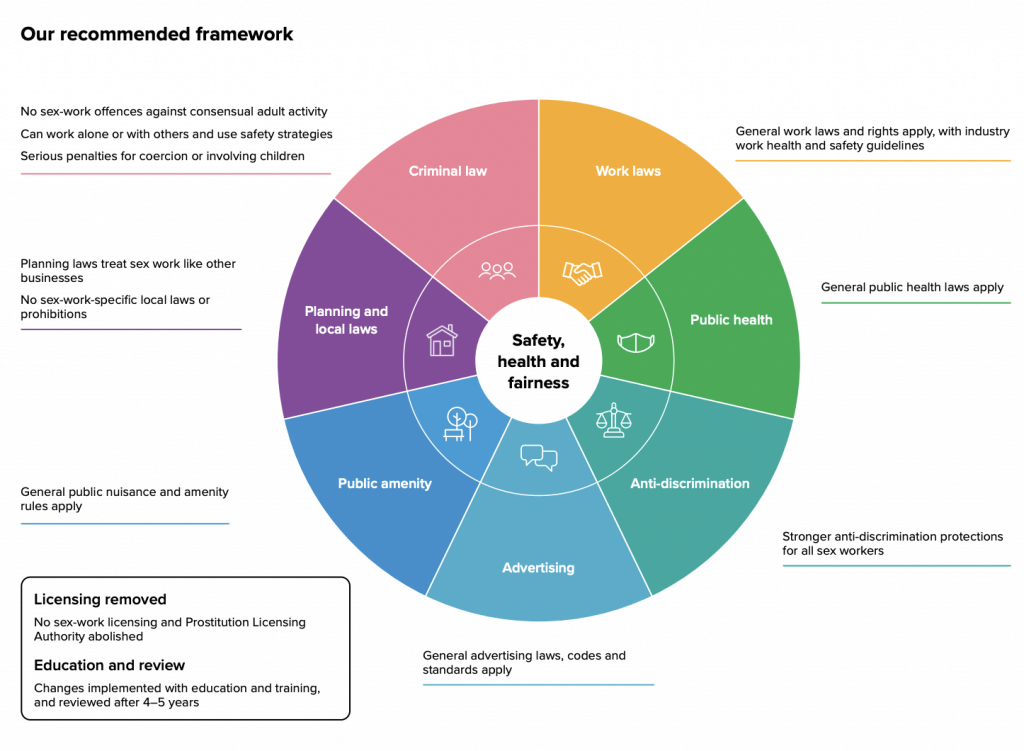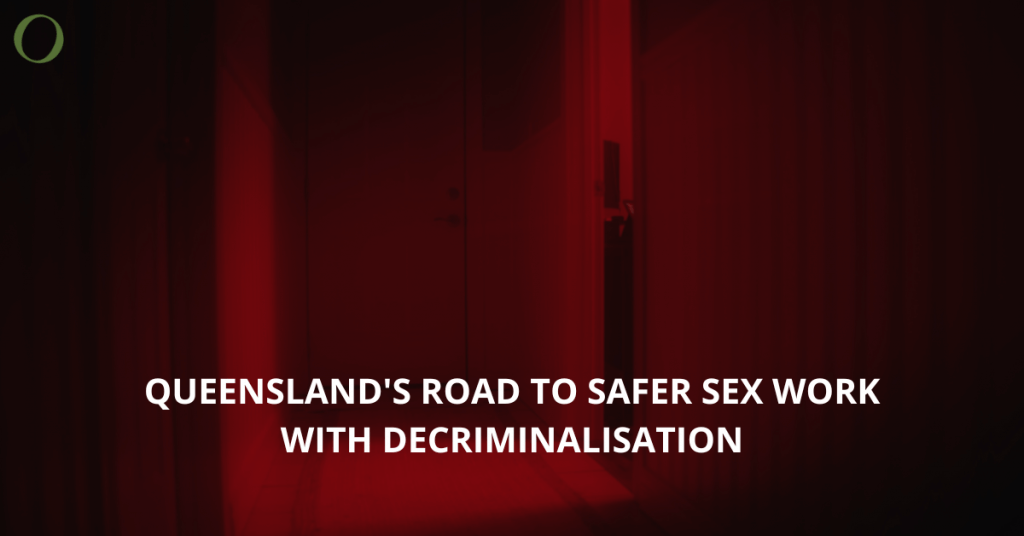The Queensland Government has taken a step towards decriminalising sex work, recognising it as work and not as a crime. The Queensland Law Reform Commission was asked to conduct a review and recommend a framework for a decriminalised sex work industry in Queensland. This was requested with the aim of enhancing safety, promoting health, and protecting the human rights of those working in the industry.
Why Changes Are Needed
The current system of regulating sex work as prostitution under criminal laws and licensing laws is flawed.
It stigmatises sex workers, increases their vulnerability to exploitation and violence, and fails to protect their human rights. It also prevents sex workers from working together and adopting safe work practices, creating barriers to accessing health, safety, and legal protections. Decriminalisation is needed to address these issues and create a safer environment for sex workers to operate in.
The aims of decriminalising sex work
The recommended framework provided by Queensland Law Reform Commission (QLRC) aims to treat sex work as a lawful business. It will be subject to the same general laws that apply to other industries.
It aims to:
- Reduce stigma and discrimination,
- Safeguard the rights of sex workers
- and ensure that sex work is between consenting adults and not involving coercion or exploitation.
Decriminalisation does not mean there will be no regulation.
Safeguards against exploitation
While decriminalising sex work, it is important to have laws in place to protect those who are vulnerable. Coercion and involvement of children in commercial sexual services should still be serious crimes with penalties. Decriminalisation does not mean condoning exploitation. However, it creates a framework that addresses it effectively while protecting the rights of sex workers.
While decriminalising sex work, it is important to have laws in place to protect those who are vulnerable. Coercion and involvement of children in commercial sexual services should still be considered as serious crimes with harsh penalties. Decriminalisation does not mean condoning exploitation, but rather creating a framework that addresses it effectively while protecting the rights of sex workers.
The Review Process
The recommendations of the QLRC are based on:
- extensive research, evidence, and consultation with various stakeholders.
- Laws and experiences from other jurisdictions, such as New Zealand and other states in Australia, were considered.
- The key principles of safety, health, and fairness
These considerations were weighed to develop a fairer and more just system for sex workers in Queensland.
What QLRC recommends
The recommended framework for decriminalising sex work in Queensland includes several key changes to the current laws in place. These aim to remove the criminalisation of sex work and create a more inclusive and lawful environment for sex workers to operate.
The following are the recommended changes:
- Removing Criminal Laws Against Sex Workers Working Together: Current laws that prevent sex workers from working together or hiring others to help them in their work will be removed. This will allow sex workers to work collectively, adopt safer work practices, and reduce the risk of exploitation and violence.
- Removing Specific Laws Against Public Soliciting for Sex Work: This will eliminate the criminalisation of sex workers who solicit in public spaces and reduce their vulnerability to arrest and harassment.
- Removing Special Sex-Work Advertising Laws: This will allow sex workers to advertise their services like any other business, subject to laws of general application, and remove unnecessary restrictions on their ability to market their services.
- Removing Extra Police Powers for Sex-Work Offences: Currently, there are extra police powers for sex-work offences, such as search and seizure powers. This will ensure that sex workers are not unfairly targeted by law enforcement and will be subject to the same general laws that apply to other businesses and individuals.
The frameworks by QLRC


The Attorney-General of Queensland and Minister for Justice, Shannon Fentiman stated:
“The Palaszczuk Government broadly supports the QLRC’s recommendations and is committed to decriminalising the sex work industry – improving safety for workers while meeting the expectations of the community.”
This commitment reflects a recognition of the flaws in the current system and a step towards creating a more inclusive and equitable system that treats sex work as work, not as a crime.

Nicole Byrne
Content Creator | Media Coordinator
O'Brien Criminal & Civil Solicitors
www.obriensolicitors.com.au




